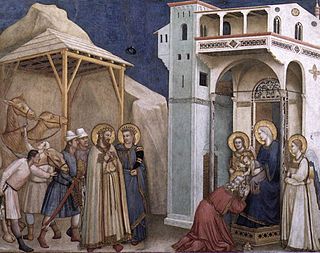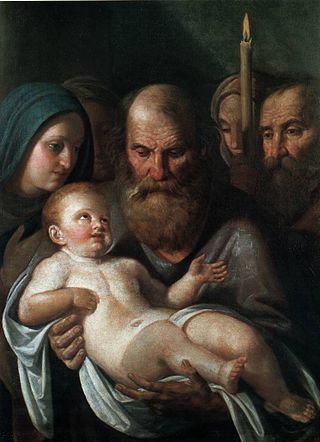See also
- "January 1st 2022", a song by Fred Again from Actual Life 3 (January 1 – September 9 2022)
- New Year's Day (disambiguation)
January 1 (aka New Year's Day ) is the first day of the year in the Gregorian calendar.
It can also refer to:

The New Year is the time or day at which a new calendar year begins and the calendar's year count increments by one. Many cultures celebrate the event in some manner. In the Gregorian calendar, the most widely used calendar system today, New Year occurs on January 1. This was also the first day of the year in the original Julian calendar and the Roman calendar.
The Revised Julian calendar, or less formally the new calendar and also known as the Milanković calendar, is a calendar proposed in 1923 by the Serbian scientist Milutin Milanković as a more accurate alternative to both Julian and Gregorian calendars. At the time, the Julian calendar was still in use by all of the Eastern Orthodox Church and affiliated nations, while the Catholic and Protestant nations were using the Gregorian calendar. Thus, Milanković's aim was to discontinue the divergence between the naming of dates in Eastern and Western churches and nations. It was intended to replace the Julian calendar in Eastern Orthodox Churches and nations. From 1 March 1600 through 28 February 2800, the Revised Julian calendar aligns its dates with the Gregorian calendar, which had been proclaimed in 1582 by Pope Gregory XIII.
The liturgical year, also called the church year, Christian year, ecclesiastical calendar, or kalendar, consists of the cycle of liturgical days and seasons that determines when feast days, including celebrations of saints, are to be observed, and which portions of scripture are to be read.

Song of Ascents is a title given to fifteen of the Psalms, 120–134, each starting with the superscription "Shir Hama'aloth", or, in the case of Psalm 121, Shir Lama'aloth. They are also variously called Gradual Psalms, Fifteen Psalms, Songs of Degrees, Songs of Steps, songs for going up to worship or Pilgrim Songs.

A sacred language, holy language or liturgical language is a language that is cultivated and used primarily for religious reasons by people who speak another, primary language in their daily lives.

The Twelve Days of Christmas, also known as the Twelve Days of Christmastide, are the festive Christian season celebrating the Nativity.
Saint Irene may refer to:

A lectionary is a book or listing that contains a collection of scripture readings appointed for Christian or Jewish worship on a given day or occasion. There are sub-types such as a "gospel lectionary" or evangeliary, and an epistolary with the readings from the New Testament Epistles.
Entrance generally refers to the place of entering like a gate, door, or road or the permission to do so.
The Eastern Orthodox liturgical calendar describes and dictates the rhythm of the life of the Eastern Orthodox Church. Passages of Holy Scripture, saints and events for commemoration are associated with each date, as are many times special rules for fasting or feasting that correspond to the day of the week or time of year in relationship to the major feast days.

The Feast of the Circumcision of Christ is a Christian celebration of the circumcision of Jesus in accordance with Jewish tradition, eight days after his birth, the occasion on which the child was formally given his name.
First of May may refer to:

Simeon at the Temple is the "just and devout" man of Jerusalem who, according to Luke 2:25–35, met Mary, Joseph, and Jesus as they entered the Temple to fulfill the requirements of the Law of Moses on the 40th day from Jesus' birth, i.e. the presentation of Jesus at the Temple.
The Old New Year, the Orthodox New Year, also known as Ra's as-Sanah or Ras el-Seni in the Middle East, is an informal traditional holiday, celebrated as the start of the New Year by the Julian calendar. In the 20th and 21st centuries, the Old New Year falls on January 14 in the Gregorian calendar.
Saint Cornelius is the name of the following saints and persons in the previous stages of liturgical veneration:
Eastern Rite or Eastern liturgical rite may refer to:
New Year is the time when a culture celebrates the end of one calendar year and the beginning of the next.
August 15 is the 227th day of the year in the Gregorian calendar.

Ethiopian liturgical chant, or Zema, is a form of Christian liturgical chant practiced by the Ethiopian Orthodox Tewahedo Church. The related musical notation is known as melekket. The tradition began after the sixth century and is traditionally identified with Saint Yared. Through history, the Ethiopian liturgical chants have undergone an evolution similar to that of European liturgical chants.
July 4 is the 185th or 186th day of the year in the Gregorian calendar. It may also refer to: